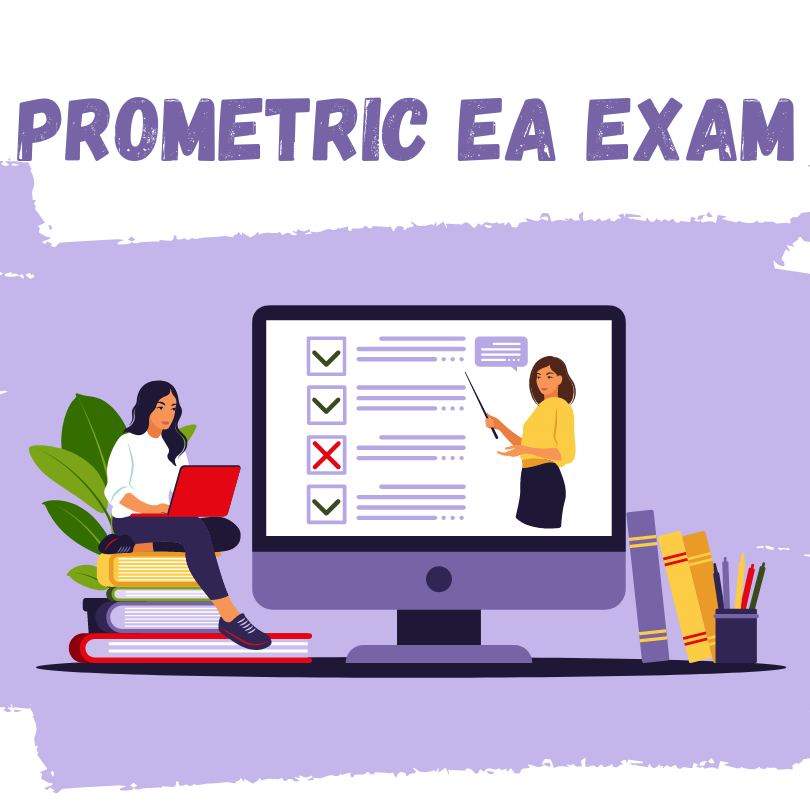Become an Enrolled Agent: Step-by-Step Guide
Passing the Enrolled Agent (EA) exam opens the door to...

Imagine yourself standing before a complex maze, each pathway representing a different aspect of tax law, your mind brimming with regulations and strategies. Navigating the labyrinthine world of tax codes and client advisories is a crucial part of the enrolled agent career – the mark of a vigilant professional armed with expertise.
The enrolled agent career is a prestigious role held by federally-licensed tax practitioners who are empowered by the U.S. Department of the Treasury to represent taxpayers before the Internal Revenue Service (IRS). These professionals possess a mastery over diverse tax situations, showcasing their expertise in all areas of taxation, law, and ethical standards. Their authority extends to advising, representing, and preparing tax returns for individuals, partnerships, corporations, estates, trusts, and any entities with tax-reporting requirements.
As fiduciaries, those in the enrolled agent career are bound by stringent ethical guidelines, commonly referred to as Circular 230. These guidelines govern their professional conduct and uphold the integrity of the federal tax profession. Enrolled agents are required to exercise due diligence in their practice, ensuring accuracy in their representations to both clients and the IRS. Their pivotal role in navigating tax matters provides peace of mind to individuals and entities dealing with the often complex and overwhelming world of tax compliance.
Enrolled Agents are federally authorized tax practitioners with extensive rights of representation before the IRS.
Enrolled Agents can negotiate with the IRS on behalf of taxpayers—a critical advantage in dispute resolution.
Knowledge in tax code and regulations enables EAs to guide clients through complex tax scenarios, ensuring compliance and strategic tax planning. Their expertise extends to individuals, businesses, and other entities facing taxation.
Ongoing education is mandatory to maintain an EA’s status, requiring constant engagement with evolving tax laws and ethical standards, which invariably benefits the taxpayers they serve.
Enrolled Agents must possess a robust set of skills and an in-depth knowledge base to navigate the complexities of tax law.
Mastering analytical and communication skills is essential for providing top-tier tax advice.
Staying informed about legislative changes ensures that Enrolled Agents offer clients the most current and strategic counsel possible.
The journey to becoming an Enrolled Agent involves a rigorous examination process, known as the Special Enrollment Examination (SEE). Candidates must pass all three parts of the SEE, which encompass individual and business tax laws, as well as representation, practices, and procedures. Prior to sitting for the exams, it’s imperative to meet the IRS’s prerequisites, including obtaining a Preparer Tax Identification Number (PTIN). Successful completion of the examination phases, along with adherence to ethical standards and a thorough background check, culminates in the privilege of practicing before the Internal Revenue Service as a federally-authorized tax practitioner.
To excel in your enrolled agent career, it is essential to have a well-structured study plan. Follow this step-by-step guide to maximize your chances of passing the EA exam and establishing yourself as a knowledgeable and proficient enrolled agent.
As an Enrolled Agent (EA), keeping abreast with the ever-evolving tax landscape is crucial. The Internal Revenue Service (IRS) mandates that EAs complete 72 hours of Continuing Professional Education (CPE) every three years, with a minimum of 16 hours per year, to maintain their status.
Furthermore, at least two of the 16 annual hours must be on ethics, specifically tailored for tax professionals. Compliance with these requirements is essential for EAs to remain knowledgeable and competent. The IRS holds EAs accountable for their CPE hours, expecting them to select programs that enhance their tax expertise and adhere to the IRS-approved courses and providers. Non-compliance can have serious implications, including the loss of the EA designation.
To ensure compliance, EAs are encouraged to take a strategic approach to their continuing education. Mapping out a plan that encompasses a variety of tax topics can provide a broad foundation of knowledge while allowing for deep dives into complex subjects. This ensures that EAs can competently advise clients across a spectrum of tax matters and stay ahead in their profession.
CPE credits must be obtained from IRS-approved education providers, and EAs are advised to keep meticulous records of their CPE hours. These records, which must be maintained for at least four years, may be requested by the IRS to verify compliance. Dedicating time to continuous learning not only safeguards an EA’s standing within the tax community but also signifies a commitment to providing the highest standard of service.
To excel in the highly specialized realm of taxation, Enrolled Agents (EAs) must actively engage in career advancement strategies that go beyond the baseline requirements. A commitment to professional networking, both in person and through online platforms, opens doors to fresh opportunities and insights that can accelerate career growth. EAs should aim to contribute to tax forums, publish articles, or offer educational seminars, which enhance their reputation as thought leaders within the industry. Additionally, pursuing leadership roles in professional organizations, such as the National Association of Enrolled Agents (NAEA), can lead to increased visibility and new client referrals. EAs intent on climbing the career ladder should also consider specialization – becoming an expert in a niche area of tax law can differentiate one’s practice and command higher fees. Ultimately, strategic career planning paired with a commitment to lifelong learning will mark an EA’s journey towards professional distinction and success.
Professional relationships are the bedrock of career growth.
In the sphere of tax advisement and representation, networking is fundamentally paramount. Enrolled Agents should immerse themselves in the interconnected web of their profession, engaging with peers, mentors, and industry leaders through forums and organizations. These interactions not only yield valuable insights but also open doors to new business endeavors. Moreover, active participation can amplify an EA’s professional presence, propelling them to the forefront of the industry as a recognized voice.
EAs should be proactive in attending conferences and events.
Staying abreast of the latest developments in tax law and technology is vital. Engage in continuous education through webinars, workshops, and industry conferences – tools for staying on the cutting edge of your profession – and you foster an atmosphere of perpetual growth that benefits both your clients and your practice.
Career progress hinges on strategic professional alliances.
Beyond immediate knowledge enhancement, powerfully constructed networks facilitate introductions to potential clients, are gateways to specialist resources, and can lead to collaborative opportunities that augment your service offering. Participation in organizations like the NAEA bolsters an EA’s profile, potentially leading to pivotal career opportunities. Engaging in these networks with earnest dedication can become a beacon that attracts professional prosperity.
As an Enrolled Agent (EA), developing a specialization can distinguish your practice in a crowded marketplace.
To thrive, continuously evolve your specialization in line with dynamic tax laws and market needs.
In the realm of taxation, Enrolled Agents (EAs) must skillfully tackle complex, ever-changing regulations. The rigors of maintaining currency with the tax code, alongside client expectations, form a demanding professional landscape. Stamina and adaptability are vital attributes for EAs navigating these challenges.
With a keen eye on IRS pronouncements, court rulings, and legislative changes, EAs must remain vigilant to effectively guide their clients through compliance and planning. Mastery of the continually updating Internal Revenue Code (IRC) is indispensable, as is the capacity to decode the nuances of tax policy—both of which are integral in offering accurate advice and representation.
Staying resilient in the face of these hurdles is not optional but imperative for an EA’s success. Accepting that the path will often be tortuous, and embracing the pursuit of lifelong learning, fortifies the foundation of an illustrious career in tax advisement.
As an Enrolled Agent (EA), remaining informed about tax law changes is essential to providing competent representation.
Staying abreast of modifications to tax codes and regulations is a professional responsibility that underpins an EA’s expertise and credibility.
In the enrolled agent career, effectively managing client expectations is vital for ensuring satisfaction and maintaining long-term relationships. It is essential to clearly communicate the scope of your services, realistic timelines, and achievable outcomes.
Transparency and honesty are highly valued by clients in the advisory relationship. Cultivate trust by explaining complex tax issues in a language that is easily understandable. Establishing a clear line of communication helps prevent misunderstandings and keeps clients informed about the progress of their tax matters.
Building a reputation for reliability involves a strategy of under-promising and over-delivering whenever possible. This approach includes developing proactive measures to address potential future tax problems, enhancing the overall service offering and client experience. By being proactive in communication and effectively managing expectations, enrolled agents can prevent disappointments and foster strong, long-term relationships with their clients.
An enrolled agent is a federally-licensed tax practitioner authorized by the U.S. Department of the Treasury to represent taxpayers before the Internal Revenue Service (IRS).
To become an enrolled agent, you must pass the Special Enrollment Examination (SEE), meet certain experience requirements, and pass a background check conducted by the IRS.
Enrolled agents can provide a wide range of tax-related services, including tax preparation, tax planning, representing clients in IRS audits, appeals, and collections, and providing general tax advice and guidance.
Enrolled agents have in-depth knowledge of tax laws and regulations, allowing them to provide expert advice and assistance in navigating complex tax issues, ensuring compliance, and maximizing tax benefits.
Enrolled agents are required to complete continuing education courses to stay updated with the latest tax laws, regulations, and changes in the tax landscape. This ensures that they provide accurate and up-to-date advice to their clients.
Yes, enrolled agents have the authority to represent taxpayers in tax court, allowing them to advocate for their clients’ interests and present their case before a judge.
You can find a qualified enrolled agent by searching the IRS directory of enrolled agents, seeking referrals from trusted sources, or contacting professional tax organizations for recommendations.
Enrolled agents are bound by the ethical standards outlined in Circular 230, which governs their professional conduct and ensures the integrity of the federal tax profession. They must maintain confidentiality, act in the best interests of their clients, and uphold high ethical standards in their practice.
Enrolled agents are tax professionals authorized by the IRS to represent taxpayers in tax matters. They are experts in tax law and provide valuable services such as tax planning, preparation, and representation before the IRS. Enrolled agents have a deep understanding of the complexities of the tax code and help individuals and businesses comply with tax obligations while maximizing deductions and credits. They also provide guidance in financial decisions and act as advocates during IRS proceedings. Enrolled agents are highly regulated and must stay updated with tax laws through continuing education. Working with an enrolled agent ensures accurate and efficient handling of taxes and helps taxpayers achieve their compliance goals.
To become an enrolled agent, you must go through a specific process that includes education, experience, and examination. Here’s a step-by-step guide to becoming an enrolled agent:
By following these steps, you can successfully become an enrolled agent and gain the authority to represent taxpayers before the IRS.
The job prospects for enrolled agents are promising and continue to grow. As tax laws become increasingly complex, the demand for enrolled agents who possess specialized tax knowledge and expertise is on the rise.
Enrolled agents have diverse career opportunities in both the public and private sectors. In the public sector, enrolled agents can work for the Internal Revenue Service (IRS) or other government agencies, providing tax compliance assistance, conducting audits, and offering taxpayer representation services.
Many enrolled agents also choose to work in the private sector, either as self-employed tax practitioners or as employees in accounting firms, law firms, corporations, or financial institutions. They may handle tax preparation, planning, and consulting for individuals, businesses, or organizations.
Enrolled agents can also pursue specialized areas within taxation, such as international tax, estate and gift tax, or tax controversy. This allows them to develop a niche expertise and potentially expand their career opportunities.
With the ever-changing tax laws and regulations, enrolled agents play a crucial role in helping individuals and businesses navigate the complexities of the tax system. Their valuable skills and knowledge make them sought-after professionals in the tax industry.
Overall, the job prospects for enrolled agents are favorable, and their expertise in tax matters positions them for continued growth and success in their careers.
Enrolled agents typically earn a competitive salary based on their expertise and experience. The exact earnings can vary depending on various factors such as geographical location, years of experience, and the size of the firm they work for. On average, the annual salary of an enrolled agent ranges from $45,000 to $75,000. However, with additional certifications, specialization, or if they establish their own tax practice, enrolled agents can potentially earn a significantly higher income. It is important to note that earning potential can also increase over time as enrolled agents gain more experience and build a strong client base.
Enrolled agents have a range of important responsibilities related to taxation and representing taxpayers before the Internal Revenue Service (IRS). Some of their main duties include:
In summary, enrolled agents are knowledgeable professionals who specialize in tax-related matters. From tax preparation to IRS representation and issue resolution, they provide comprehensive services to individuals and businesses, ensuring compliance with tax laws while maximizing benefits for their clients.
A career as an Enrolled Agent offers distinct advantages and differences compared to other tax professionals.
Enrolled Agents (EAs) have a unique level of expertise and authority when it comes to tax matters. They are federally licensed by the Internal Revenue Service (IRS) and can represent taxpayers before all administrative levels of the IRS, including audits, collections, and appeals. This sets EAs apart from other tax professionals who may have limited representation rights.
Unlike Certified Public Accountants (CPAs) or tax attorneys, who often specialize in a broader range of financial and legal matters, Enrolled Agents focus primarily on taxation. They have a deep understanding of the complexities of the tax code, tax planning strategies, and compliance requirements.
While CPAs and tax attorneys may require state-specific licensure, Enrolled Agents have a nationwide scope of practice. This means they can provide tax services and represent clients in any state regardless of where they are licensed.
One significant advantage of becoming an Enrolled Agent is the flexibility in career options. EAs can choose to work in various settings, such as private accounting firms, tax preparation companies, corporations, or even operate their own tax practices. This versatility allows EAs to tailor their careers to their interests and goals.
Moreover, the Enrolled Agent designation is recognized and respected by the IRS and taxpayers alike. It signifies a high level of competence and ethical standards in the tax profession. Clients and employers often seek out Enrolled Agents because of their specialized tax knowledge and the ability to navigate complex tax situations.
In summary, a career as an Enrolled Agent offers unique advantages compared to other tax professionals. EAs have extensive representation rights, expertise in tax matters, nationwide practice privileges, and a versatile range of career options. Becoming an Enrolled Agent can be a rewarding choice for individuals passionate about taxation and helping clients with their tax needs.
Advantages:
Disadvantages:
Overall, pursuing a career as an enrolled agent offers many advantages such as expertise, versatility, and representation rights. However, it is important to weigh these benefits against the continuous learning, workload peaks, liability, and potential stress associated with the profession.
As an Enrolled Agent, there are several ways you can find job opportunities in your field. Here are some effective methods you can explore:
Remember, finding job opportunities as an Enrolled Agent requires diligence, networking, and presenting yourself as a qualified professional. Stay proactive, keep your skills updated, and be open to different avenues for job exploration. Good luck in your job search!

Passing the Enrolled Agent (EA) exam opens the door to...

The journey to becoming an Enrolled Agent is both challenging...

Imagine gazing at a promising future as a tax professional.However,...

Achieving the status of an Enrolled Agent is a significant...

Are you envisioning a successful career as an Enrolled Agent?It's...